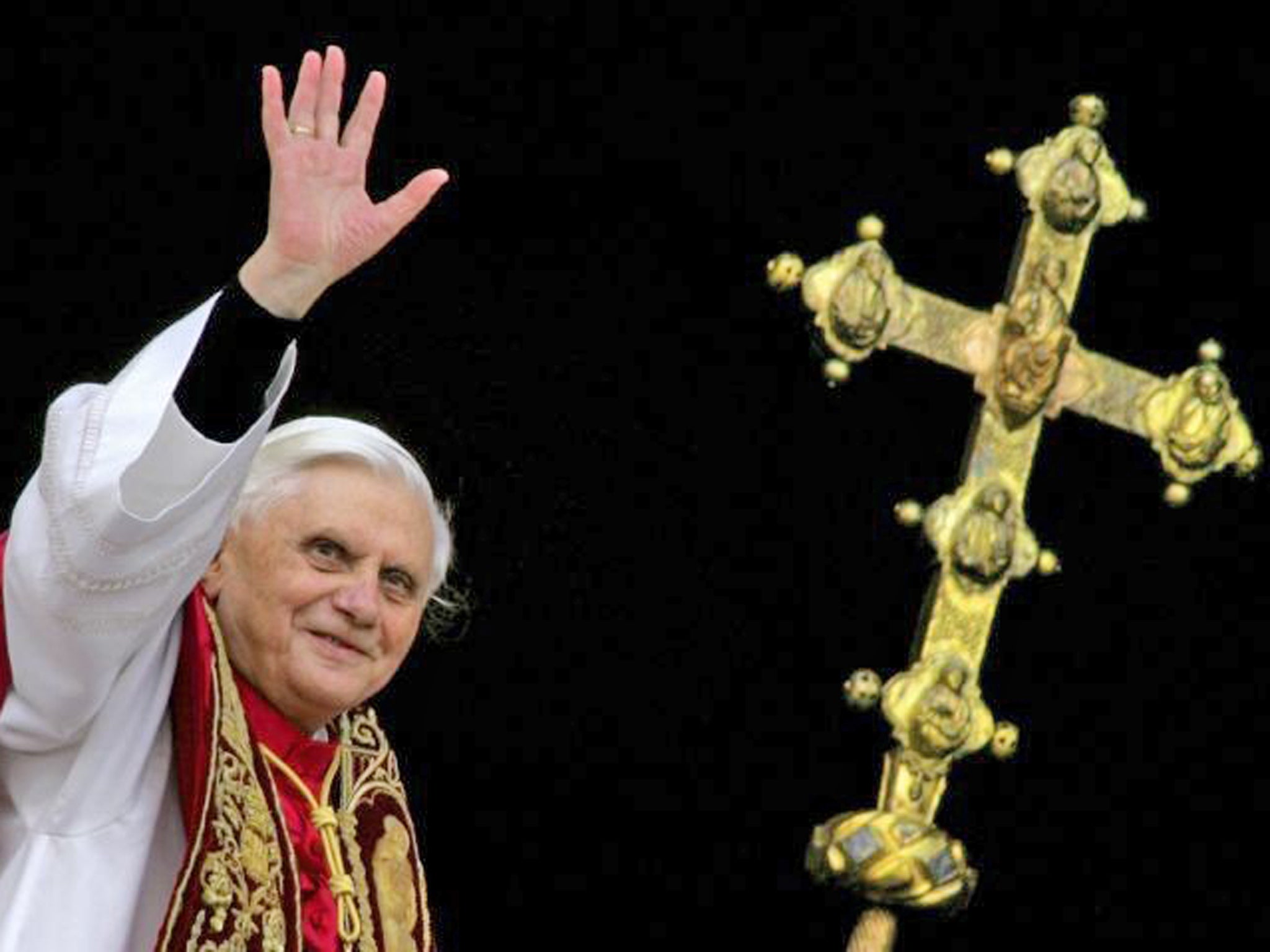Pope Benedict XVI didn’t fail as the spiritual leader of the church, he just wasn’t up to running it
The modern world, not just the church, will be poorer for the absence of a thoughtful intellectual in public life

The one thing the last pope, John Paul II did, in dying so very publicly in office, was to make the abdication of his successor seem more or less unthinkable. And indeed, Pope Benedict more or less apologised for his abdication even as he was making it. “I am well aware”, he said to the college of cardinals, “that this ministry, due to its essential spiritual nature, must be carried out not only with words and deeds, but no less with prayer and suffering. However in today’s world … in order to govern the bark of Saint Peter … both strength of mind and body are necessary…”
And he felt he lacked those strengths: it was a recognition of his limitations, something that requires a good deal of humility.
The papacy, a little like the British monarchy, has two functions. One is the richly symbolic business of simply being the successor of Peter, what the historian of the papacy, Eamon Duffy, calls the pope’s “iconic role”. Benedict was not so large a figure as his predecessor, and was less obviously charismatic in fulfilling this symbolic function – he comes across as both shy and rather holy.
The other part of the job, however, is the administration and supervision of a large and complex institution. Benedict didn’t fail as the spiritual leader of the church, but he wasn’t up to running it. As he said, “in today’s world, subject to so many rapid changes, and shaken by questions of deep relevance for the life of faith”, it’s not possible simply to subcontract the responsibilities to others unelected even by a college of cardinals. His workload has diminished in recent months to, allegedly, as little as two or three hours a day; for a profoundly conscientious man, that wouldn’t be enough.
The weakness of Benedict’s papacy comes from his strength, his formidable intelligence – he comes from the great tradition of German scholarship that ended with the second world war. And scholars of his stamp aren’t cut out for a world of rapid response and soundbite. He may have used Twitter – or rather, it was used on his behalf – but his world of careful, reasoned argument isn’t readily translated into 140 characters. Some of his greatest difficulties have arisen when his arguments have been taken out of context – that remark about Islam that got him into trouble in 2006 was taken brutally from a quote by a Byzantine emperor in the course of a lecture to German academics about Hellenic versus Hebrew elements in scripture. I can’t think of many commentators who actually read the whole thing. Ditto, his all too brief aside about condoms in the course of a trip to Africa.
The modern world, not just the church, will be poorer for the absence of a thoughtful intellectual in public life. Retiring will, however, give him more time for prayer and books. To be happy, in fact.
Join our commenting forum
Join thought-provoking conversations, follow other Independent readers and see their replies
Comments